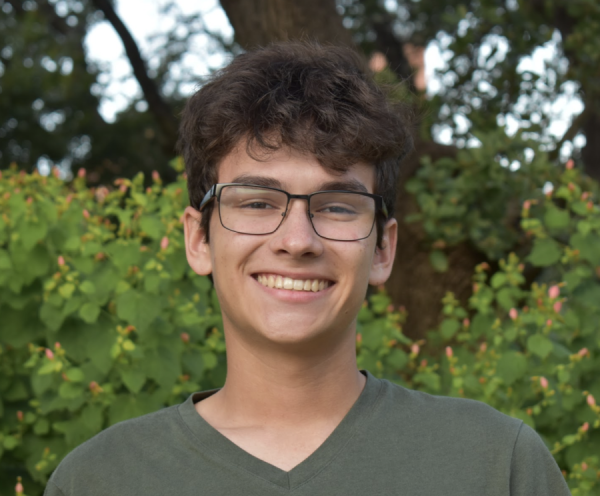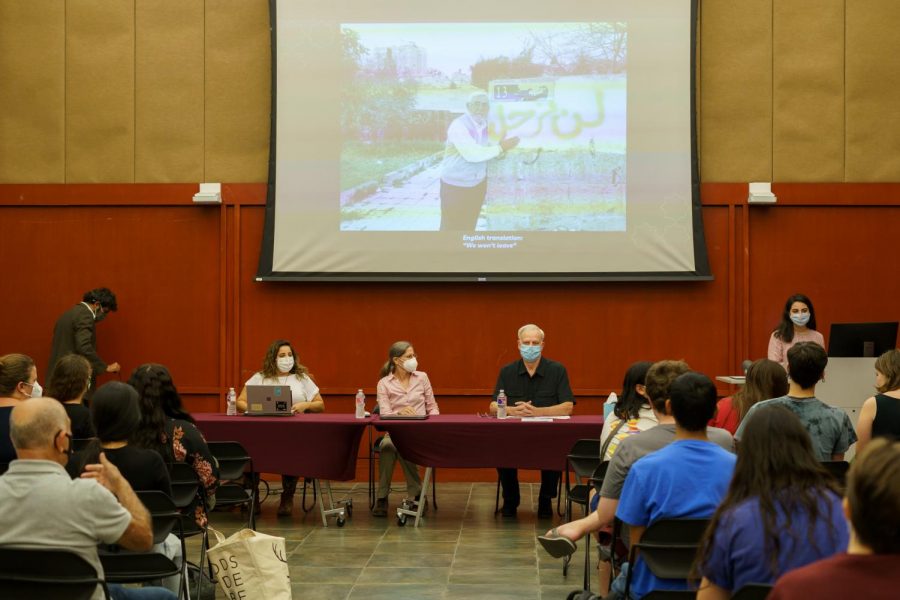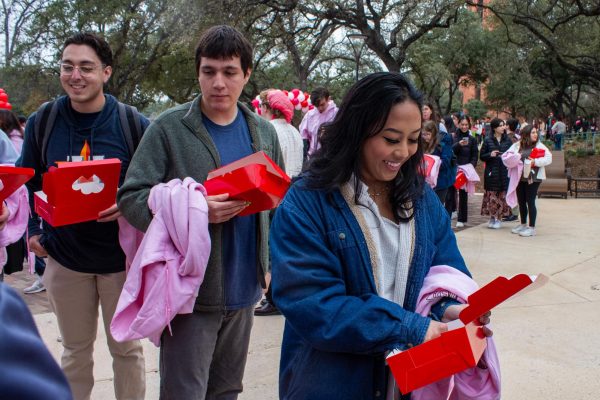Palestine 101 panel highlights Palestinian experiences
Trinity and San Antonio speakers addressed the discourse around the Israeli-Palestine conflict
Panelists Judith Norman, Henry Gunkel and Moureen Kaki discussed the ongoing Israeli-Palestine conflict Thursday, Oct. 7, bringing Palestinian voices to the forefront.
In light of the forced evictions of Palestinians living in the East Jerusalem neighborhood of Sheikh Jarrah in May 2021, Trinity’s Muslim Student Association (MSA) and Trinity Diversity Connection (TDC) hosted Palestine 101 on Thursday, moderated by Tahir Naqvi, an associate professor of sociology and anthropology at Trinity. The event featured three panelists who addressed claims and questions regarding the sensitive situation between Israel and Palestine. At the beginning of the panel, Dana Hatab, the president of MSA and primary organizer of the event, announced that the statements expressed at the event do not necessarily reflect the views of MSA, TDC or the panelists/moderator’s feelings. In a separate interview, she explained that her motive for organizing the event greatly stemmed from her Arab background.
“I feel I have an obligation to highlight things that are going on in my community,” Hatab said. “In this case, the Palestinian-Israeli conflict is hugely relevant. In the U.S., there is a very one-sided narrative, often very pro-Israeli, and it doesn’t give voice to the Palestinians, or it paints them in a really negative light, so my primary intention with this panel was to raise awareness to the topic [of] how Palestinian rights are negated in the U.S. discourse.”
Moureen Kaki, a graduate student of anthropology at UTSA and a local activist for Palestinian rights in San Antonio, participated as a panelist for the event.
“What I would suggest if you’re interested in social justice is to start by recognizing the point of view of those most marginalized and most affected by the issue you are looking at,” Kaki said. “In this case, that would be the Palestinians.”
The ongoing conflict has sparked debate between groups of people all around the world including American college campuses like Trinity. News around the termination of faculty members who criticized the Israeli government at other universities creates another layer of concern. However, panelist Harry Gunkel, an active member of Jewish Voice for Peace, the Palestine-Israel Network of the Episcopal Peace Fellowship and Friends of Sabeel North America, maintained that the panelists “do not want to skirt around the truth of what’s happening.”
“I think we all have an obligation to educate ourselves on what’s going on in the world around us,” Hatab said. “College is a perfect time to do that. People are more open-minded to learning about things, and the college setting is receptive to that.”
Accusations of antisemitism have also risen in the face of criticism against Israel. Due to the polarizing nature of the event, Hatab explained that a lot of care went into planning it.
“People were particularly worried that it might lead another group of students on campus to feel marginalized or directly attacked which, of course, is absolutely the last thing I wanted,” Hatab said.
Panelist Judith Norman, a philosophy professor at Trinity, expressed at the event that she stands “with Palestine not in spite of [her] Jewish heritage, but because of it.”
“I think Jewish safety is best served by ensuring that the countries we live in have robust human rights,” Norman said.
During the event, Kaki talked about her experience as a Palestinian-American visiting Palestine. She described the terrified feelings she had as an eight-year-old going through Israel’s military checkpoints.
“I’m not sure what gives anybody the right to instill that kind of fear in someone, much less a state who has an entire military force behind it and is occupying a demilitarized, non-state population,” Kaki said at the panel. “Nobody’s one historical context takes precedence over the other.”
Hatab expressed her hope that the panel provided an informative and eye-opening experience for students and attendees alike.
“I really hope that it broadened their perspective and encouraged them to think critically about certain things they may hear in the future that are anti-Palestinian,” Hatab said. “I want them to walk away feeling a lot more educated in the reality of the situation.”
Despite the multiple challenges and hurdles that organizers of Palestine 101 faced in planning it, the event was successful in delivering its pro-Palestinian message. As Norman expressed, “Justice isn’t justice unless it’s whole. It needs to be justice for all.”

My name is Sam (he/him) and I'm a photographer here with the Trinitonian. I'm a senior Communications and German double major from Austin, Texas, and...











